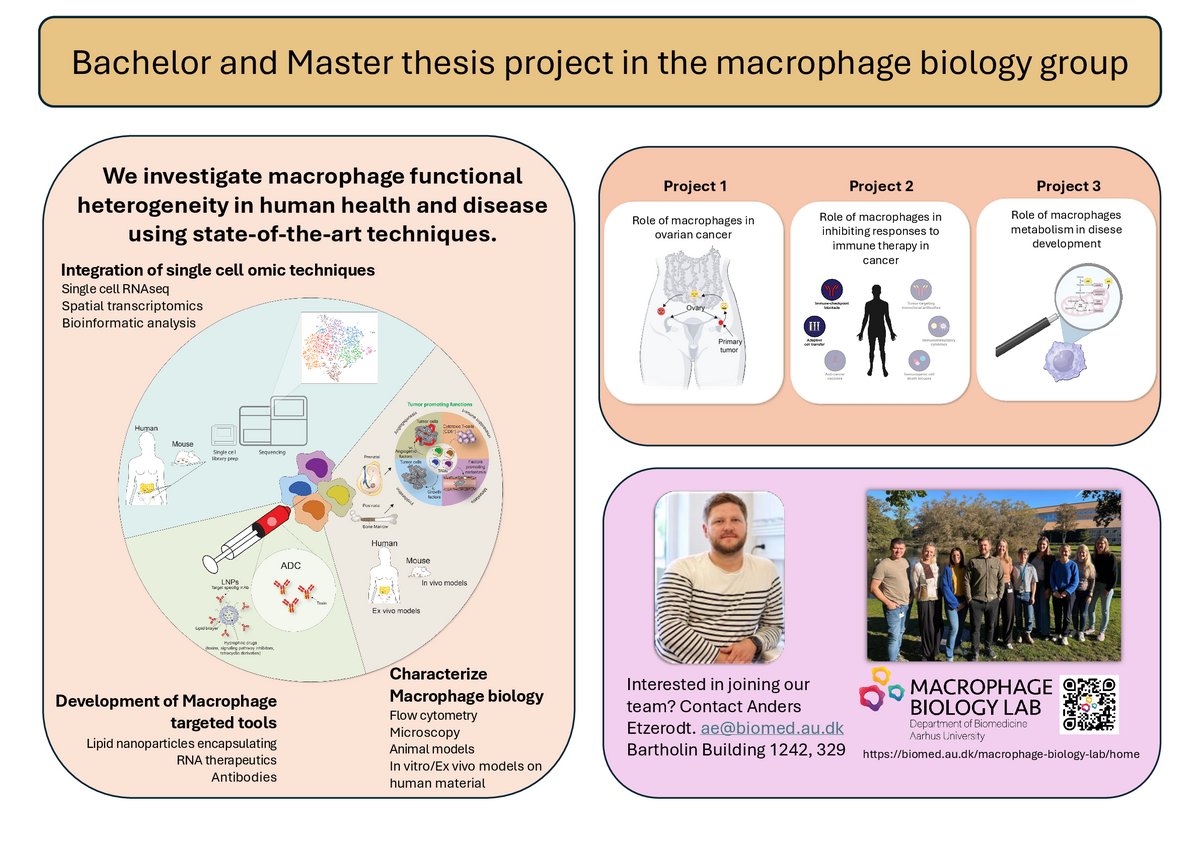Our research focus
Macrophage Function and Biology
Our lab is deeply focused on macrophage biology, exploring their roles in both health and disease. A key area of interest is the study of tumor-associated macrophages (TAMs) in cancers such as melanoma, pancreatic cancer, and ovarian cancer. Our goal is to unravel the specific functions of macrophage subsets in tumor initiation and progression. Given the dual roles of TAM subsets—acting as either anti-tumoral or pro-tumoral—these cells have become a compelling target for immunotherapy. We strive to dissect the heterogeneity of TAMs, clarify their distinct functions, and identify reliable markers to differentiate between these subsets.
To achieve this, we utilize an array of mouse tumor models and integrate cutting-edge bioinformatics approaches, particularly single-cell RNA sequencing analysis, to deepen our understanding.
Macrophage Communication
Beyond their traditional roles as immune regulators and "big eaters," macrophages are increasingly recognized for their critical involvement in tissue homeostasis. Much of their function hinges on intercellular communication, involving both the reception and production of extracellular signals like cytokines and chemokines. In recent years, extracellular vesicles (EVs) have emerged as a significant focus in this field. These small, double-layered vesicles are released by all cells and carry diverse cargo, including proteins, RNA, DNA, and lipids. In our lab, we isolate and study EVs produced by specific macrophage subsets to uncover their unique functions.
Macrophage Targeting
To address our research questions, we are actively developing innovative strategies to target specific macrophage subsets. One of our key approaches involves lipid nanoparticles engineered for selective uptake. By conjugating these nanoparticles with antibodies, we can achieve precise delivery to target cells. Additionally, we are exploring variants of CRISPR technology to enhance our targeting capabilities, opening up exciting new avenues for macrophage-directed interventions.
